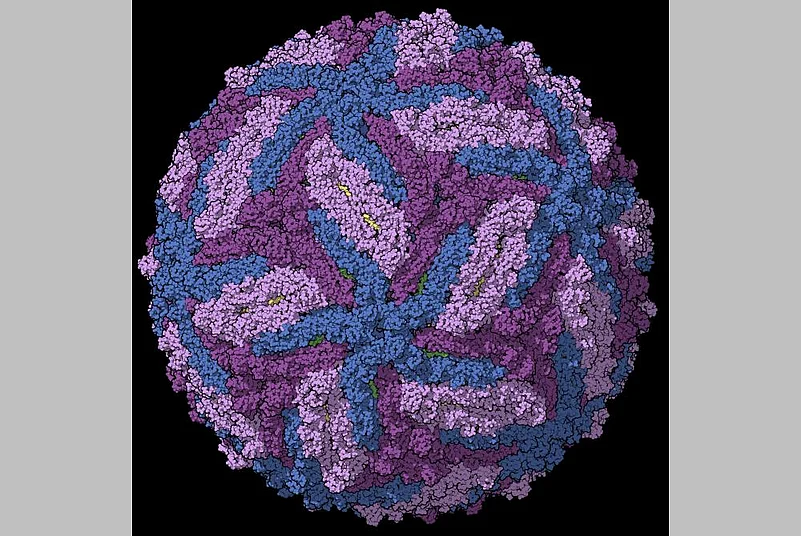The World Health Organisation (WHO) has confirmed three cases of Zika virus in the country from Ahmedabad, Gujarat.
The WHO has put out the release on their website, saying that “Ministry of Health and Family Welfare-Government of India (MoHFW) reported three laboratory-confirmed cases of Zika virus disease in Bapunagar area, Ahmedabad District, Gujarat, State, India.”
“The routine laboratory surveillance detected a laboratory-confirmed case of Zika virus disease through RT-PCR test at B.J. Medical College, Ahmedabad, Gujarat. The etiology of this case has been further confirmed through a positive RT-PCR test and sequencing at the national reference laboratory, National Institute of Virology (NIV), Pune on 4 January 2017 (case 2, below). Two additional cases (case 1 and case 3), have then been identified through the Acute Febrile Illness (AFI) and the Antenatal clinic (ANC) surveillance,” the release adds.
Advertisement
The WHO says that the "Indian Council of Medical Research (ICMR) has tested 34 233 human samples and 12 647 mosquito" in all. 500 of those samples came from Bapunagar, Ahmedabad.
WHO says that The Rashtriya Bal Swasthya Karyakram (RBSK) is "monitoring microcephaly from 55 sentinel sites." They add that there has been no increase in the number of cases or "clustering of microcephaly" has been further found from these centers.
The WHO has also listed the cases that were confirmed, including a 22-year-old female in the 37th week of her pregnancy. Another case is of a “34-year-old female, delivered a clinically well baby at BJMC in Ahmedabad on 9 November 2016. During her hospital stay, she developed a low grade fever after delivery.”
Advertisement
Here are the cases as per the WHO:
Case 1: During the Acute Febrile Illness (AFI) surveillance between 10 to 16 February 2016, a total of 93 blood samples were collected at BJ Medical College (BJMC), Ahmedabad, Gujarat State. One sample from a 64-year-old male presenting with febrile illness of 8 days’ duration (negative for dengue infection) was found to be positive for Zika virus at BJMC, Ahmedabad. This is the first Zika positive case reported through AFI surveillance at BJMC, Ahmedabad, Gujarat State.
Case 2: A 34-year-old female, delivered a clinically well baby at BJMC in Ahmedabad on 9 November 2016. During her hospital stay, she developed a low grade fever after delivery. No history of fever during pregnancy and no history of travel for the past three months was reported. A sample from the patient was referred to the Viral Research & Diagnostic Laboratory (VRDL) at the BJMC for dengue testing and thereafter found to be positive for Zika virus. She was discharged after one week (on 16 November 2016). The sample was re-confirmed as Zika virus positive by RT-PCR and sequencing at NIV, Pune.
Case 3: During the Antenatal clinic (ANC) surveillance between 6 and 12 January 2017, a total of 111 blood samples were collected at BJMC. One sample from a 22-year-old pregnant female in her 37th week of pregnancy has been tested positive for Zika virus disease.
The health organization has also put out advice regarding the prevention and control of the disease, as reproduced below:
“Prevention and control relies on reducing mosquitoes through source reduction (removal and modification of breeding sites) and reducing contact between mosquitoes and people. During outbreaks, health authorities may advise that spraying of insecticides be carried out. Insecticides recommended by the WHO Pesticide Evaluation Scheme may also be used as larvicides to treat relatively large water containers.
Advertisement
Basic precautions for protection from mosquito bites should be taken by people traveling to high risk areas, especially pregnant women. These include use of repellents, wearing light colored, long sleeved shirts and pants and ensuring rooms are fitted with screens to prevent mosquitoes from entering.
WHO does not recommend any travel or trade restriction to India based on the current information available.”




















